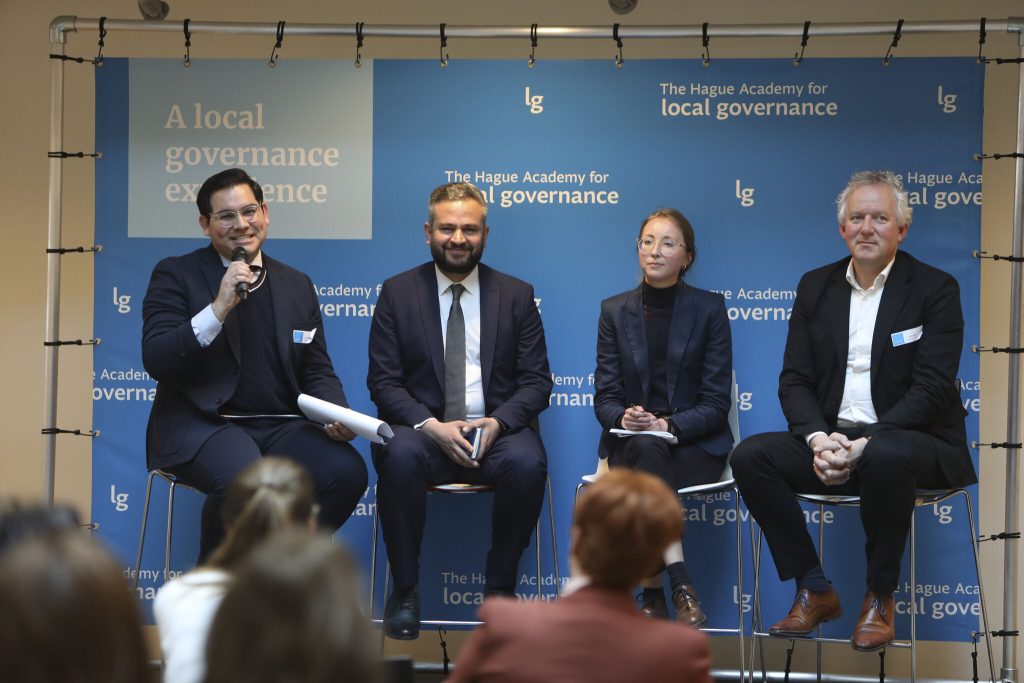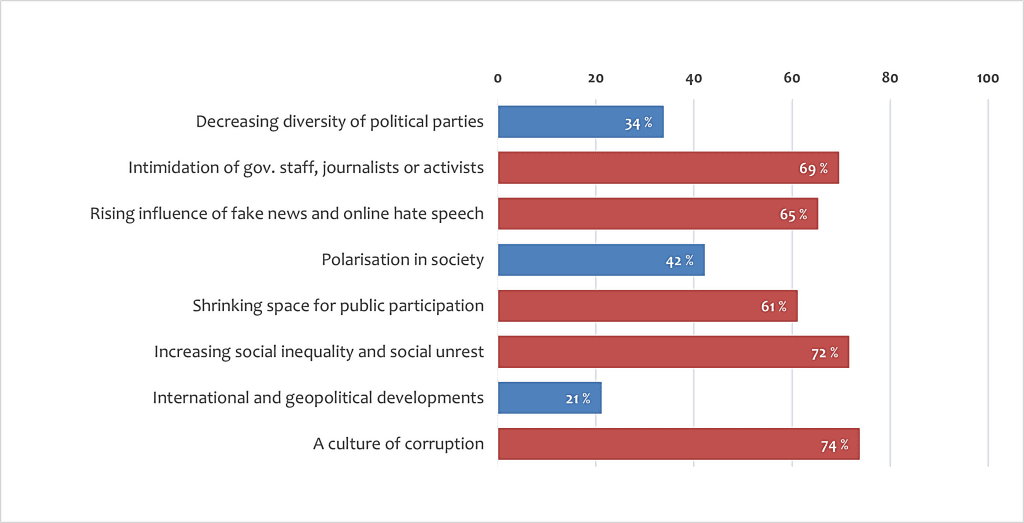The Hague Academy for Local Governance recently celebrated its 15th anniversary by organising a series of events that focused on the future of democracy worldwide. The discussions centred around the challenges facing local democracies and the solutions needed to overcome them. Practitioners and alumni came together to share experiences, exchange ideas, and explore ways to promote democracy globally.

The Hague Academy for Local Governance was founded 15 years ago to support democratic development around the world. The organisation has since become a leading voice in the field, providing practice-oriented training and knowledge exchange activities for people working in local governments, civil society organisations, and donor and development organisations.
15-Year Anniversary and the Summit for Democracy
The Hague Academy’s 15th-year anniversary event on March 23rd coincided with the second Summit for Democracy, a global initiative by the United States government and supported by The Netherlands. The aim of the summit is to coordinate state and non-state actors around the world to not only celebrate democratic achievements but also discuss the threats and need to strengthen democracy today more than ever. As a contribution to the summit as part of the Democracy Under Threat coalition of Dutch civil society organisations, The Hague Academy organised a webinar with its alumni and an in-person event in The Hague to reflect on the latest developments and future challenges for local democracies around the world.
Democracy challenges for alumni
Preparing for the event, The Hague Academy reached out to 100 alumni from its large international network – from Indonesia to Colombia to Sudan and Nigeria – asking local practitioners around the world to share their insights on the current state of global democracy. The survey made clear that there are a lot of threats to developing democracy. Intimidation of journalists, activists, opposition parties and government staff, a culture of corruption, inequality, polarisation, fake news and hate speech are the most mentioned challenges on the minds of alumni.

Despite these challenges, the alumni remained optimistic about the future of democracy. They believed that democracy could indeed become stronger in the next decade, provided that governments are more transparent about their policies, citizens are more actively engaged in the democratic process, and there is a greater focus on inclusivity and accountability in decision-making processes. While there were strong caveats, the relative optimism of the responses reflected an understanding that work on these issues is being done among local authorities, civil society actors and international partners..
At the Event – Challenges to Democracy
 The debate held on the 23rd of March was organised as part of a series leading up to the International Summit for Democracy a week later. It sought to highlight several elements from the Democracy Under Threat Manifesto proposed by the working group of Dutch civil society organisations. These included a.o.; more citizen participation and models for direct democracy; more training for and cooperation with the next generation of politicians, public leaders, and civil activists; and shifting resources from national to local levels to increase public accountability and responsiveness.
The debate held on the 23rd of March was organised as part of a series leading up to the International Summit for Democracy a week later. It sought to highlight several elements from the Democracy Under Threat Manifesto proposed by the working group of Dutch civil society organisations. These included a.o.; more citizen participation and models for direct democracy; more training for and cooperation with the next generation of politicians, public leaders, and civil activists; and shifting resources from national to local levels to increase public accountability and responsiveness.
Big on the agenda was understanding the status of democracy today. Throughout the world, while democracies still outnumber autocracies by a slight margin, undemocratic forces threaten the health of democracies at every turn. These are related often to fake news, disinformation, corruption, conflict, and influence from foreign autocratic actors. But most stories – especially among alumni – regard the inequality between those in power who have all privileges and poor and marginalised groups who lack access to services and resources. As one of The Hague Academy alumni put it: “If public officials eat what belongs to the people there can be a serious uprising. When there are social inequalities and unequal distribution of resources the potential of conflict is high”.
Kamaran Palani, alumnus and panel member, described the complex context of Iraq: “A growing lack of confidence in the elections, limited accountability for the use of violence by armed groups, misinformation and hate speech are posing threats to local democracy in Iraq. However, we are hopeful about the emergence of women and youth-led initiatives and CSOs, combined with younger generations being less attracted to ethno-sectarian divisions. These represent major opportunities for democracy in our country”.
At the Event – An Optimistic Outlook
But how do you strengthen democracies? The alumni survey identified five elements to ensuring a healthy democracy – the most popular responses among a multitude of factors: they highlighted free and fair elections, freedom of expression, an effective balance of power, transparency and access to government information, and participation of citizens in government policies.
According to Iyad Hammad from the Palestinian Territories, democracy starts with trust and credibility. To build trust, he said, governments need to be more transparent about their policies. Irma Nugrahanti from Indonesia said citizen participation is the key to a well-functioning and inclusive democracy: “It’s not just ticking a box. Governments need to guarantee that the interests of marginalised groups are included, instead of policies that benefit just certain groups”.
Overall, participants of the event emphasised the need for more training and cooperation among the next generation of politicians, public leaders, and civil activists to ensure the long-term sustainability of democratic institutions.
The Hague Academy Director, Cecile Meijs, closed the event with encouraging remarks: “Worldwide, we see brave people – both in government and civil society – fighting for more democracy under very difficult circumstances. They need our continuous support. They have told us how important it was to meet like-minded people, to see examples from abroad, to share experiences and exchange ideas, and how this inspired them in their work back home. Let’s learn from their braveness and perseverance, and let their stories motivate us to step up our efforts for promoting democracy worldwide”.
The 15th anniversary of The Hague Academy was an opportunity to reflect on the progress made and the challenges ahead in promoting democracy worldwide. The discussions underscored the importance of continuing to support local democracies, providing training and capacity-building to government officials and civil society actors, and prioritising inclusivity, transparency, and accountability in all democratic processes.
______________________________
Watch a video summary of the series of events organised by the Democracy Under Threat Coalition!












